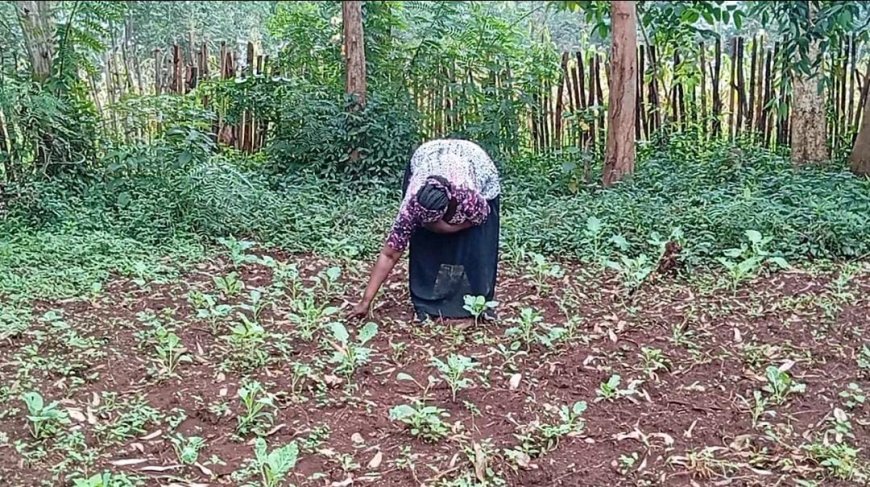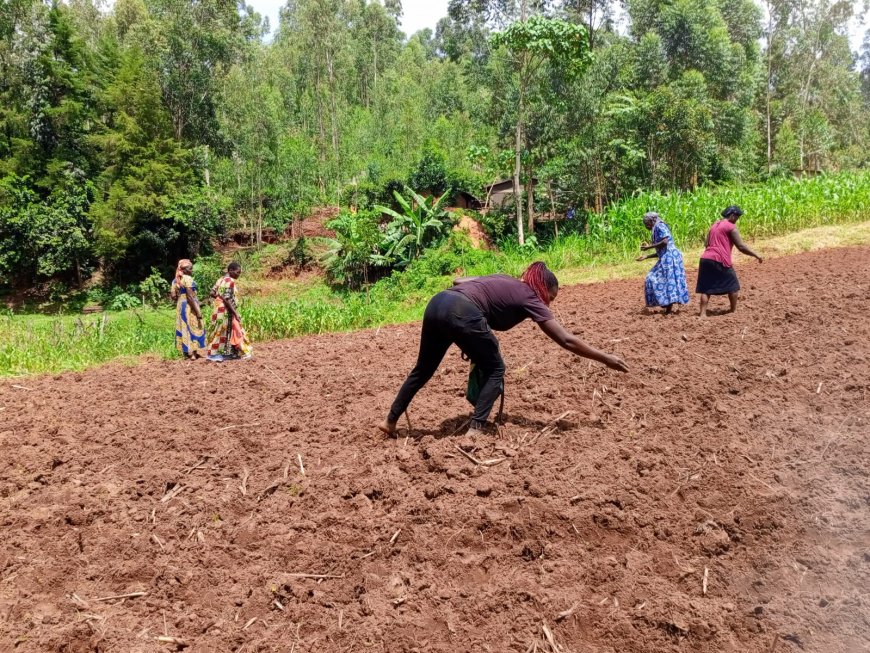Kakamega Women Opt For Land Leasing to Increase Food Production
Recognizing this disparity, women in Kakamega County are breaking societal barriers by leasing land for food production and to counter the challenges they face in land ownership.
As the world marks International Women’s Day on 8th March 2024, under the theme ‘Invest in Women: Accelerate Progress’, the focus is on initiatives that help address female economic dis-empowerment in all sectors.
In agriculture, for instance, women are said to make essential contributions to the growth of agricultural and rural economies in developing countries. Women, more so in the rural areas, are central to all aspects of agriculture as they engage in multiple economic activities to fend for their complex households. Such activities include growing crops, tending to animals, and trading agricultural produce.
According to the Food and Agriculture Organisation, women constitute about 43 per cent of the global agricultural labour force. Further evidence indicates that availing necessary agricultural resources to women farmers can increase the total agricultural output in developing countries (that depend majorly on agriculture) by 2.5 to 4 per cent.
Despite their predominant role in this sector, women farmers face resource constraints that hinder their productivity. Land ownership is among these challenges. The Kenya Demographic and Health Survey 2022 indicates that only twenty-five per cent of women in Kenya own agricultural land. This factor limits women farmers’ ability to contribute significantly to food production.
“Historically, we have witnessed the role women play in producing food. Unfortunately, patriarchal factors, more so in Western Kenya, bar most women from owning land. Those who access family land do so through their husbands, which is highly dependent on their relationship,” says a Programs Officer at Shibuye Community Health Workers.
Recognizing this disparity, women in Kakamega County are breaking societal barriers by leasing land for food production and to counter the challenges they face in land ownership.
In Mwiyenga Village, Butsotso South Ward, in Kakamega County, I meet Romona Andayi. Upon reaching her home, I found her inspecting the indigenous vegetables she planted adjacent to her house. On measurement, her land, which comprises the compound, her house, and the farm, is estimated to be half an acre.

Romona inspecting kales in her kitchen garden
She tells me the land her husband inherited from his parents is insufficient to cater to her family. She, however, notes that she joined Shibuye Community Health Workers, an initiative that advocates for women economic and social justice, where she was enlightened on leasing land.
“As you can see, this farm is small. The vegetables I plant are only enough for family consumption. I meet other family needs by leasing land from my neighbours, where I plant ground nuts, vegetables, maize, and Soybeans for commercial purposes. I have educated my children, bought livestock, and am helping my husband build a house using the income I get from the harvests,” says Romona.
Another women’s group from Sheywe ward in the same county has also opted for this venture. They have leased a two-acre piece of land where they plant traditional vegetables and maize. Irene Nasimiyu, a member of the Recada Women Group, emphasizes that leasing land has not only empowered the group economically but has also played a pivotal role in social development.

Members of Recada Women group sowing seeds in the leased land
“Most of us live in Kakamega Town, where we don’t own land. Therefore, we came together to find ways to empower ourselves. We have received training on various projects, including regenerative and climate-smart agriculture. Using our knowledge, we lease land collectively, grow crops, sell the produce, and then divide the profits among ourselves, creating a sustainable model for economic independence,” says Nasimiyu.
“We dream of owning a piece of land someday,” she added.
In alignment with International Women’s Day and achieving Sustainable Development Goals 1 (End poverty), 2 (Zero hunger), 5 (Gender equality), and 8 (Decent work and economic growth), this grassroots initiative exemplifies how empowering women in agriculture can contribute to economic growth and social progress.
However, this empowering practice comes with its own set of challenges. Many farmers, including women, have reported conflicts with landowners due to the lack of a legal agreement.
“I have previously been disappointed by lessors who end up canceling the lease before the end of the agreed period,” says Romona.
“In addition to disagreements with the land owners, we face security issues as our produce is stolen. Unfortunately, we cannot decide to fence the leased land since we do not own it,” added Nasimiyu.
To address these challenges, the Shibuye Community Health Workers Group, led by its founder, Violet Shivutse, has developed land leasing guidelines that provide clear instructions and steps farmers can follow to lease land legally.
“After advocating for women to start leasing land, we noticed most were complaining. Therefore, we came up with land leasing guidelines. These instructions help our members to minimize conflicts while promoting a fair partnership between landowners and farmers,” says Shivutse.
Shivutse’s group has collaborated with local authorities, including chiefs and sub-chiefs, to ensure widespread adoption of the guidelines in Kakamega County. They call on local policymakers to formalize these guidelines as a legal framework that safeguards the interests of parties involved in land leasing.
Nominated Member of the Kakamega County Assembly, Jael Omunyang’oli, also a member of the Agricultural Committee, has pledged to champion these guidelines in the policy-making house.
“I have seen and experienced how these guidelines have helped farmers, not only women but youths and men. For that reason, I will push my committee, the County Assembly, and the executive to adopt these guidelines, a key weapon in battling food insecurity for our people,” stated Omunyang’oli.
She emphasizes the importance of investing in women-led agricultural initiatives to increase agricultural production and achieve a more inclusive and sustainable future.
AUTHOR
Sharon Ambani
SOURCE
Originally published on storyspotlight.co.ke
PHOTO
© Sharon Ambani